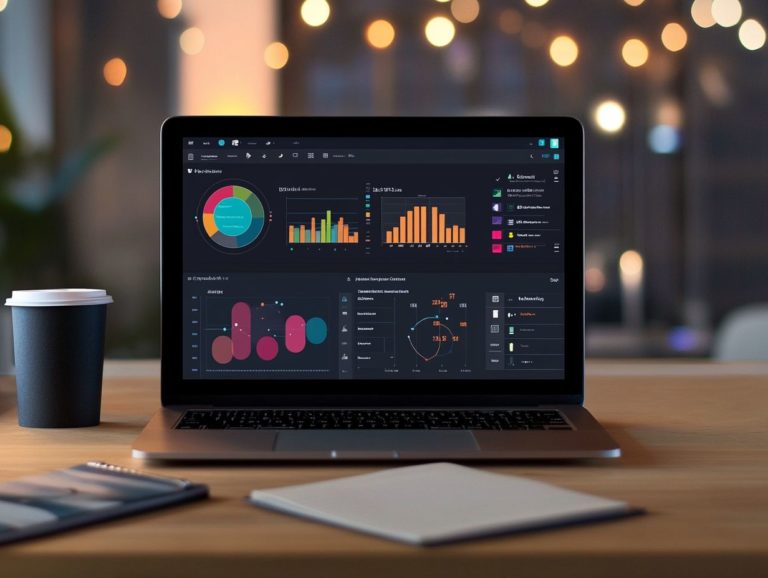91. 5 Key Features of CRM for Event Management
In today’s fast-paced event landscape, your ability to manage effectively is essential for creating unforgettable experiences.
A robust CRM (Customer Relationship Management) system can streamline your processes, guiding you seamlessly from event registration to attendee engagement.
This article delves into five key features of CRM for event management:
- Centralized databases
- Ticketing solutions
- Communication tools
- Planning coordination
- Analytics
It also covers the benefits, challenges, and strategies for optimizing CRM to elevate your events, ensuring you remain at the forefront of the competitive event industry.
Contents
- Key Takeaways:
- 1. Centralized Database Management
- 2. Event Registration and Ticketing
- 3. Communication and Marketing Tools
- 4. Event Planning and Coordination
- 5. Analytics and Reporting
- What Is CRM for Event Management and How Does It Work?
- What Are the Benefits of Using CRM for Event Management?
- What Are the Key Factors to Consider When Choosing a CRM for Event Management?
- How Can CRM Help with Attendee Engagement and Retention?
- What Are the Possible Challenges of Implementing CRM for Event Management?
- How Can Event Planners Maximize the Use of CRM for Event Management?
- Frequently Asked Questions
- What are the 5 key features of CRM for event management?
- How does contact management benefit event management?
- What is customer segmentation and why is it important for event management?
- Can CRM for event management track event attendance?
- How does email marketing integrate with CRM for event management?
- Why are reporting and analytics important for event management?
Key Takeaways:
Here s what you need to know:
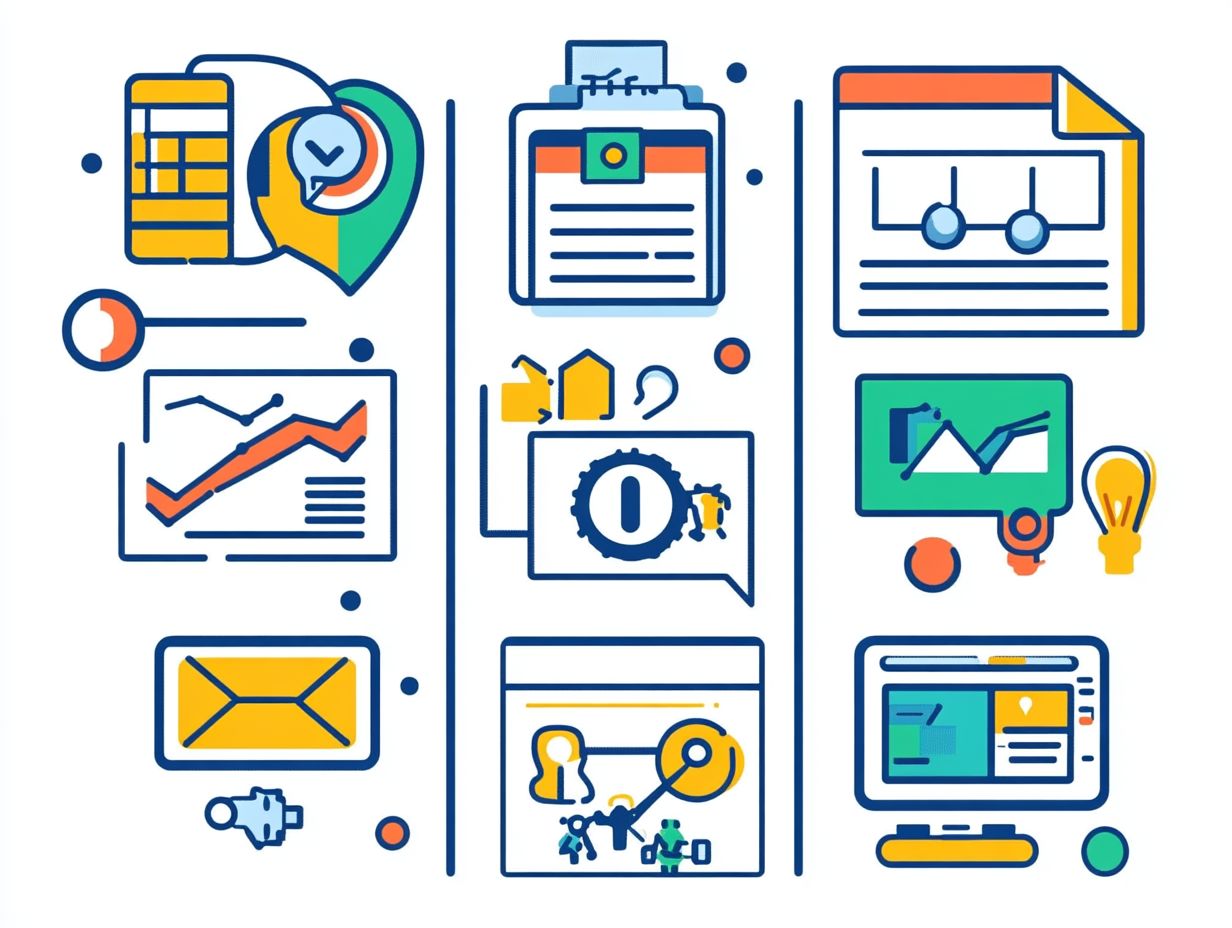
- A centralized database management system streamlines event planning and makes information easily accessible for efficient coordination.
- Event registration and ticketing features allow for seamless and convenient attendee sign-ups and payments.
- Communication and marketing tools within a CRM empower you to captivate and engage attendees effectively.
1. Centralized Database Management
Centralized database management is the backbone of your event management strategy, enabling you to efficiently store, track, and analyze vital data throughout the event lifecycle.
This not only enhances attendee engagement but also ensures compliance with necessary standards such as GDPR (General Data Protection Regulation) and PCI-DSS (Payment Card Industry Data Security Standard).
This system streamlines all aspects of data utilization while boosting the visibility of key metrics, making it effortless for you to visualize trends and participant feedback.
With automated workflows in place, you can minimize tedious manual tasks, reducing errors and freeing up your time for more strategic planning.
Integration with CRM systems streamlines lead management, allowing you to nurture relationships easily.
A centralized database also supports rigorous compliance certifications, facilitating audits and ensuring your data handling practices meet legal obligations, ultimately building credibility with your stakeholders.
2. Event Registration and Ticketing
Event registration and ticketing systems are essential tools for managing the complexities of an event, ensuring that attendees enjoy a seamless experience while enabling effective revenue tracking and financial oversight.
These systems come equipped with a range of features designed to optimize the entire process.
From customizable reports that help you analyze data with precision to automated reminders that keep your attendees informed and engaged, they simplify your tasks significantly.
Many platforms boast strong integration capabilities with CRM solutions, allowing you to maintain cohesive communication and foster personalized engagement with your participants.
By enhancing the overall registration experience and streamlining ticketing processes, these systems are instrumental in ensuring that your events are not only well-attended but also financially successful.
3. Communication and Marketing Tools
Communication and marketing tools are crucial for you as an event organizer, empowering you to engage attendees, manage logistics seamlessly, and ensure essential information reaches everyone in a timely manner through various channels like email marketing and real-time updates.
These tools encompass everything from advanced event management software that integrates effortlessly with mobile apps to chat platforms that foster instant feedback and interaction.
By harnessing features such as push notifications, personalized agendas, and live polls, you can significantly elevate client engagement.
Utilizing social media channels not only expands your outreach but also cultivates a vibrant community around your event.
Implementing strategic communication plans, including enticing pre-event teasers and insightful post-event surveys, guarantees that your attendees feel involved and valued.
This approach creates smoother logistics and an unforgettable experience for everyone involved.
Now is the time to implement these CRM features in your event planning to take your events to the next level!
4. Event Planning and Coordination
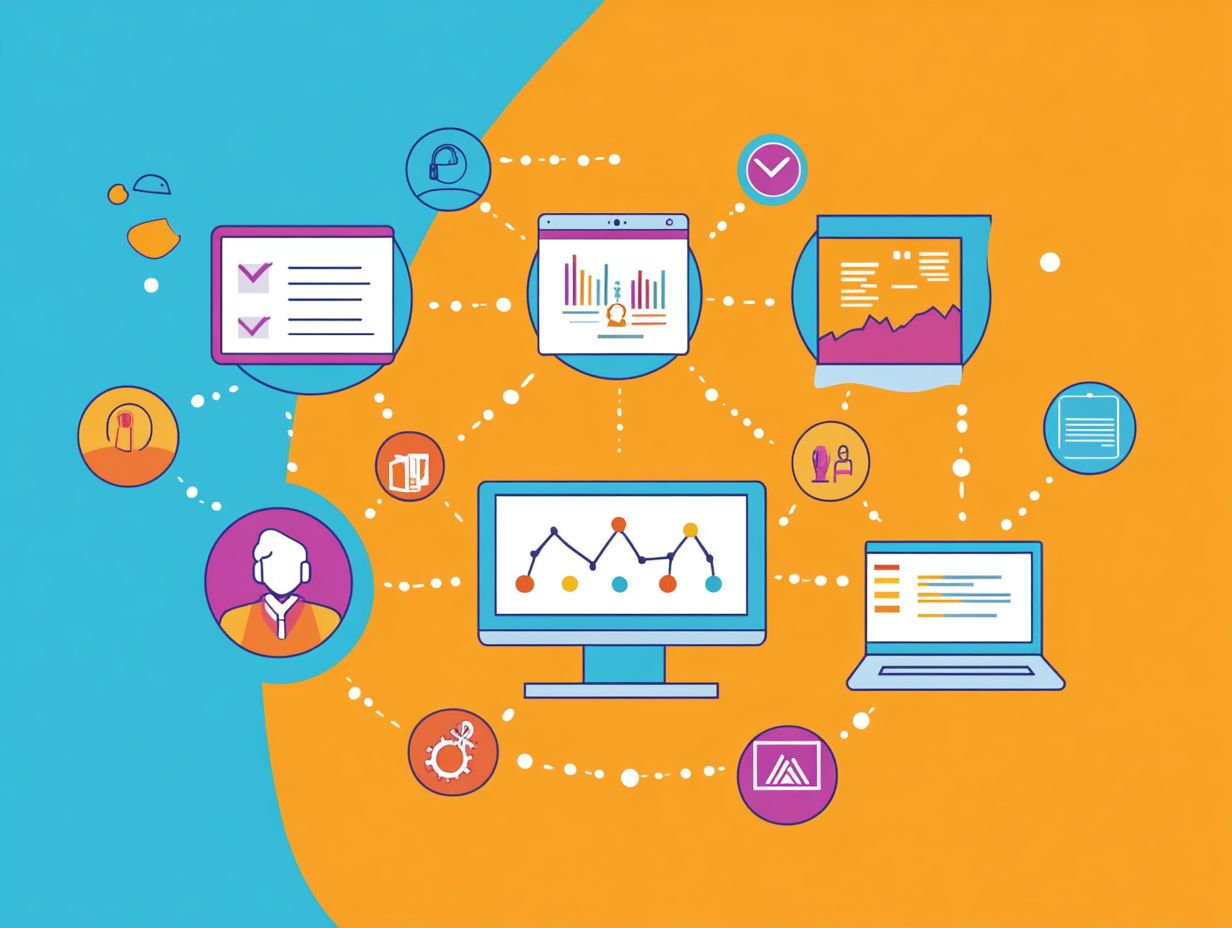
Event planning and coordination require you to master many different tasks. You ll need to juggle vendor coordination, manage sponsorships, and keep a tight grip on your budget to ensure the event is a success.
To navigate this intricate landscape, using a variety of tools can significantly enhance your efficiency and clarity. Task tracking software allows you to monitor deadlines and deliverables, ensuring that nothing slips through the cracks.
Automated workflows streamline your coordination efforts, minimizing manual errors and freeing up time for creativity and problem-solving. For budget management, best practices involve thorough forecasting and consistent monitoring.
Building strong relationships with vendors leads to better negotiation terms and higher-quality services. By leveraging these resources, you ll facilitate a smoother planning process and pave the way for a successful outcome.
5. Analytics and Reporting
Analytics and reporting tools enable you, as an event planner, to explore performance metrics and attendee feedback. These insights are crucial for assessing your event’s success and informing future enhancements.
These tools allow for a thorough examination of various event elements, from registration statistics to engagement levels, enabling you to pinpoint strengths and weaknesses.
Using advanced segmentation tools, you can categorize your audience based on behaviors and preferences. This not only elevates your targeted marketing efforts but also ensures a more personalized experience for every attendee.
Implementing lead scoring systems helps you prioritize leads based on their likelihood of conversion, refining your follow-up strategies. This data-driven approach cultivates a richer understanding of audience behavior, allowing for more effective event strategies in the future.
What Is CRM for Event Management and How Does It Work?
Customer Relationship Management (CRM), which stands for Customer Relationship Management, is an integrated approach for event management. It combines functionalities like data tracking, attendee engagement, and communication management to streamline the entire event lifecycle while ensuring data security and compliance with essential certifications such as GDPR and PCI-DSS.
By leveraging advanced integration capabilities, these systems connect seamlessly with tools like marketing automation and ticketing platforms, creating a cohesive user experience. This integration allows for real-time data synchronization, ensuring you always access the latest information.
Robust security features, including data encryption, safeguard sensitive attendee information and foster trust in your event brand. Use this powerful technology to create unforgettable, personalized experiences for your attendees!
The result? Enhanced engagement before, during, and after the event keeps your attendees coming back for more.
What Are the Benefits of Using CRM for Event Management?
Utilizing CRM solutions for event management presents a wealth of advantages, including heightened attendee engagement, streamlined lead management, and the ability to harness data analysis for informed choices, all working together to optimize your event experience.
Integrating automated workflows saves precious time and resources, allowing you to focus on the creative aspects of event planning. The system facilitates real-time tracking of attendee interactions, providing insights that shape your future strategies and enhance personal connections.
In-depth data analysis uncovers patterns in attendee behavior, enabling you to implement more targeted marketing efforts and boost satisfaction rates.
This makes performance metrics clearer, and the entire experience for attendees is tailored and enjoyable, fostering long-term relationships and loyalty.
Ready to elevate your event experience? Discover how you can implement these strategies today!
What Are the Key Factors to Consider When Choosing a CRM for Event Management?
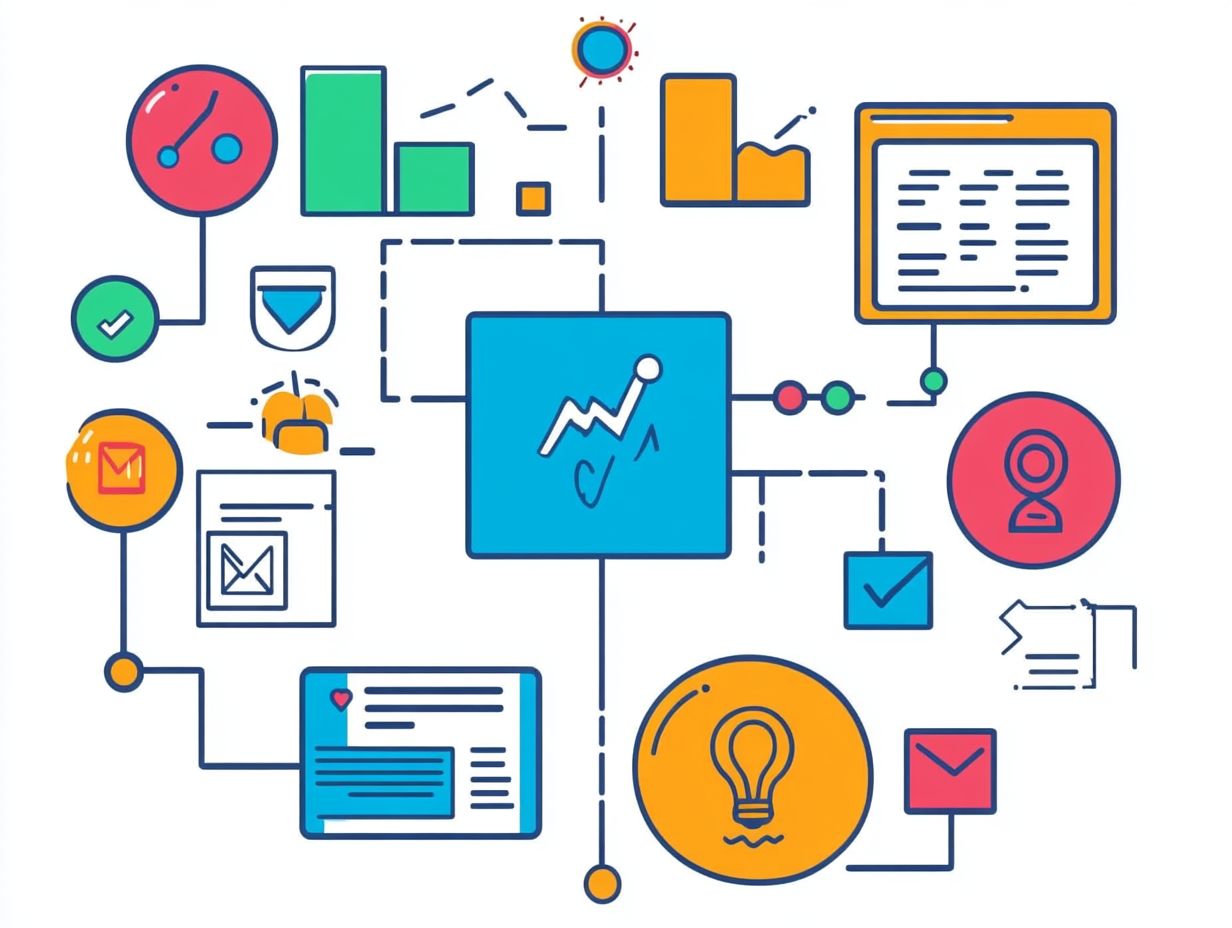
When selecting a CRM for your event management needs, consider reviewing the top 5 CRMs for event management as several key factors come into play.
Look for integration capabilities that align seamlessly with your existing event technology. A user-friendly interface will make navigation a breeze. Additionally, ensure compliance certifications are in place to guarantee the security and privacy of your data.
It’s crucial to evaluate how effectively the CRM can automate event processes, such as registrations and follow-ups. This saves you time and reduces the chances of human error.
Security features are essential; they safeguard sensitive attendee information and ensure you can handle data securely, all while adhering to industry regulations.
A smooth integration enhances your workflow and fosters collaboration among various teams. This ultimately paves the way for more successful events.
By thoroughly assessing these aspects, you can select a CRM that caters to your unique needs while establishing a reliable foundation for your organization’s growth.
How Can CRM Help with Attendee Engagement and Retention?
CRM features are essential for elevating attendee engagement and retention. They enable you to create personalized interactions and automate reminders while using data analysis to understand attendee preferences and feedback. Learning how to use CRM for event management can enhance these capabilities even further.
These tools effortlessly send automated reminders, ensuring that your attendees are always informed about upcoming events. They also foster ongoing communication, keeping individuals engaged throughout the entire experience.
By utilizing feedback tools, you can gather real-time insights into what resonates with your audience. This allows for quick adjustments that enhance the overall experience.
The importance of data analysis is profound; it enables you to effectively segment your audience. This lets you tailor experiences to meet individual interests, boosting satisfaction and significantly increasing retention rates for your future events.
What Are the Possible Challenges of Implementing CRM for Event Management?
Implementing CRM solutions for event management can bring several challenges, such as data security concerns, integration complications, and potential pushback from users who aren t familiar with new systems.
Navigating these hurdles is essential for ensuring a seamless transition and maximizing the effectiveness of the technology.
For example, to bolster data security, you might consider investing in encryption technology (a method that protects data by converting it into a secure format) and establishing robust access controls. Conducting regular security audits will also help.
User adoption can be significantly enhanced through comprehensive training sessions and by involving end-users in the selection process. This helps them feel more invested in the new system.
Staying informed about compliance requirements is crucial. Regularly updating policies and pursuing necessary certifications will help avoid legal pitfalls and foster trust among your clients.
How Can Event Planners Maximize the Use of CRM for Event Management?
You can take your event planning to the next level by fully leveraging the capabilities of CRM for event management. Start by taking advantage of task tracking features and using data analysis to boost attendee engagement.
Implement automated workflows to streamline your processes. By organizing your schedules within the CRM, you can effortlessly set reminders for crucial deadlines, assign specific tasks to your team members, and monitor progress in real time.
Delve into participant data through in-depth analysis to uncover trends and preferences. This enables you to craft personalized communications that genuinely resonate with your audience.
Automating repetitive tasks, like sending confirmations or follow-up emails, frees up your valuable time. It also ensures a seamless experience for your attendees. Together, these strategies will lead to more successful events and help you forge deeper connections with participants.
Frequently Asked Questions
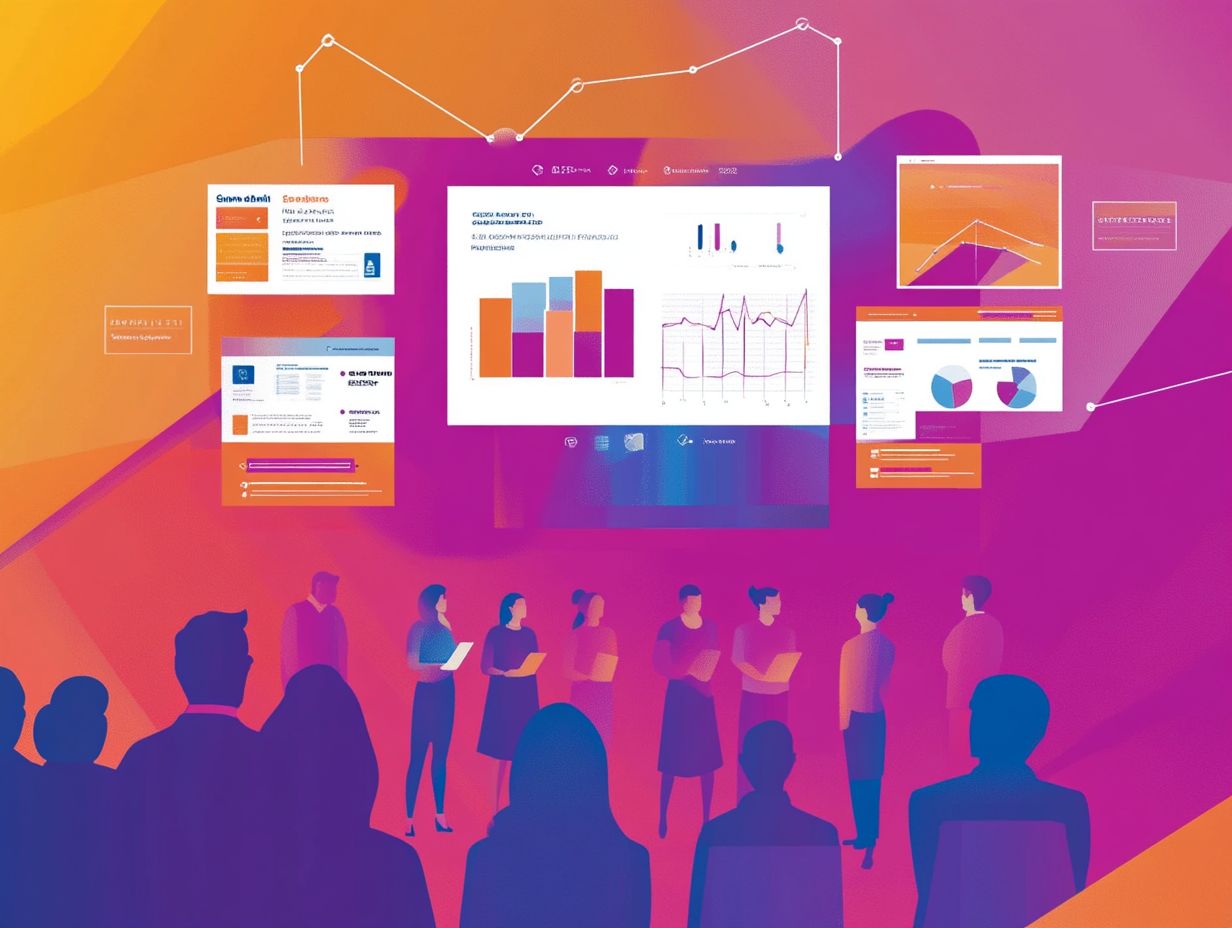
What are the 5 key features of CRM for event management?
The five key features are contact management, customer segmentation, event tracking, email marketing, and reporting and analytics. For a deeper understanding of these essential tools, check out the key features every nonprofit CRM should have. Each feature plays a vital role in organizing successful events.
How does contact management benefit event management?
Contact management helps event organizers keep all contacts attendees, sponsors, and more in one spot. This centralization makes communication and engagement tracking much simpler.
What is customer segmentation and why is it important for event management?
Customer segmentation means grouping customers based on shared traits. This strategy allows organizers to tailor marketing efforts and boost engagement and attendance.
Can CRM for event management track event attendance?
Yes! CRM systems enable organizers to create attendee lists, manage registrations, and check-in participants at the event. Tracking attendance has never been easier.
How does email marketing integrate with CRM for event management?
CRM systems allow targeted, personalized email campaigns for different customer segments. This approach increases the likelihood of turning leads into attendees while tracking campaign success for future improvement.
Why are reporting and analytics important for event management?
Reporting and analytics provide crucial insights into event success, such as attendance rates and engagement levels. This information empowers organizers to make informed decisions that enhance future events.


